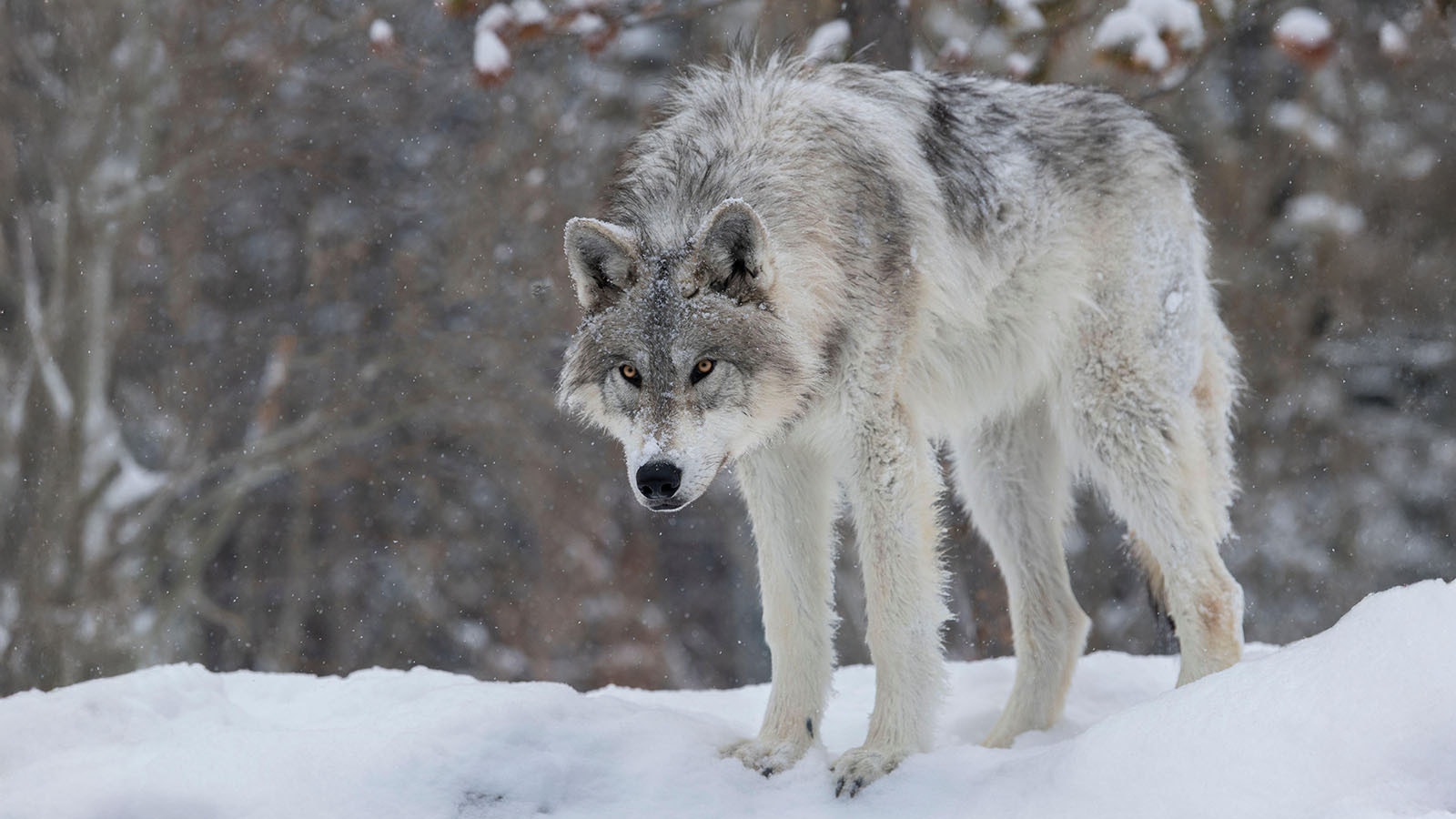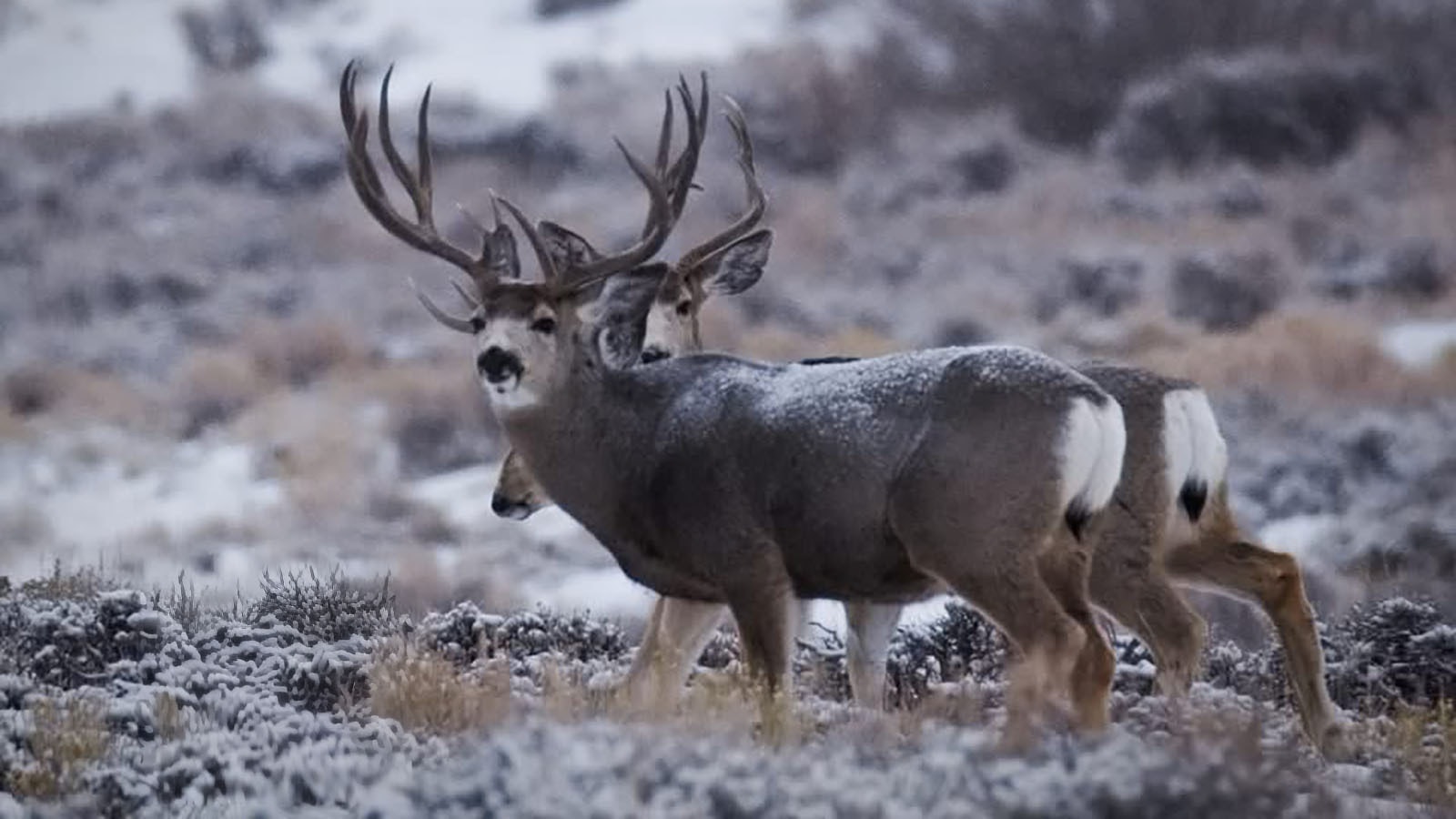Not quite two years into its wolf reintroduction program, Colorado might be out of options for getting more wolves, with Washington State being the latest entity to refusing to send any.
The last batch of 15 wolves released in Colorado, in January, came from British Columbia, Canada.
But last month, U.S. Fish and Wildlife Services (FWS) Director Brian Nesvik effectively stated that can’t happen again.
An agreement between FWS and Colorado Parks and Wildlife (CPW) doesn’t authorize Colorado to get wolves from outside the Northern Rocky Mountain region, Nesvik stated in a letter to CPW Director Jeff Davis.
Colorado then asked Washington State for 15 wolves, to be released in Colorado, either late this year or in early 2026.
However, Washington this week said no, citing concern over a decline in its own wolf population, Colorado Public Radio reported.
Colorado resident and wolf reintroduction advocate Samantha Miller told Cowboy State Daily that’s left her feeling pessimistic.
“I think that Colorado’s wolves are in an incredibly precarious position with Washington refusing to provide any more wolves,” said Miller, the senior carnivore campaigner with the Center of Biological Diversity.
Time To Hit The Pause Button?
Colorado’s wolf reintroduction program was initiated by Proposition 114. It was passed by Colorado voters in 2020 by a margin of 50.91% to 49.09%.
Reintroductions began in December 2023, with the release of 10 wolves from Oregon.
Oregon has since declined to send any more wolves.
And Wyoming, Montana and Idaho have flatly refused from the beginning to send wolves to Colorado.
John Michael Williams lives in Colorado and has watched the wolf reintroduction program closely through his Colorado Wolf Tracker social media site.
Williams said that like many Coloradans, he thinks it might be time for Colorado to pause and reassess wolf recovery.
“In my opinion, I think taking a pause is the prudent thing to do,” he told Cowboy State Daily.
That would give CPW time to call ranchers, conservationists and others to the table for discussions about how to move forward.
“I think it would help the CPW regain credibility they’ve lost with ranchers and other people over the past two years,” he said.
Uncertain Future
Colorado currently has about 30 wolves and four established packs.
That isn’t enough to ensure an established population and genetic diversity, Miller said. For that, about 50 wolves are needed.
If more wolves aren’t brought in this winter, it could leave wolf recovery in a rough spot, she said.
“The Colorado wolf population is essentially an island,” she said.
Wolves can’t safely migrate north to Wyoming, where it’s legal to shoot wolves, she said.
That’s happened to at least three of Colorado’s reintroduced wolves.
To the south, there’s worry that gray wolves from Colorado might disrupt the recovery of Mexican gray wolves in New Mexico.
Utah doesn’t want wolves and “I certainly haven’t seen any wolves in Kansas recently,” Miller said.
Colorado officials have indicated that Nesvik’s objections to getting wolves from Canada might not apply, because Canada’s wolves don’t fall under the jurisdiction of the U.S. Endangered Species Act.
Even so, going through the current federal administration might be too politically fraught, Miller said.
CPW Is Resourceful
Despite the hurdles, Williams said it wouldn’t surprise him if, one way or another, more wolves are brought in to Colorado this winter.
“I think that CPW is resourceful, and it would not surprise me at all if they can come up with 15 wolves from somewhere, that would not cause the USFWS to step in,” he said.
In a statement emailed to Cowboy State Daily, CPW spokesman Luke Perkins indicated that the Canada option had been “paused,” but the agency hasn’t given up on finding more wolves.
“CPW has a Memorandum of Understanding (MOU) and a signed contract with British Columbia’s Ministry of Water, Land and Resource Stewardship to translocate 10-15 wolves this winter, but this has been paused in compliance with recent USFWS guidance regarding population sourcing for gray wolf translocation,” Perkins stated.
“CPW continues to prepare for translocation efforts this winter should a viable source population be identified,” he added.
Mark Heinz can be reached at mark@cowboystatedaily.com.





